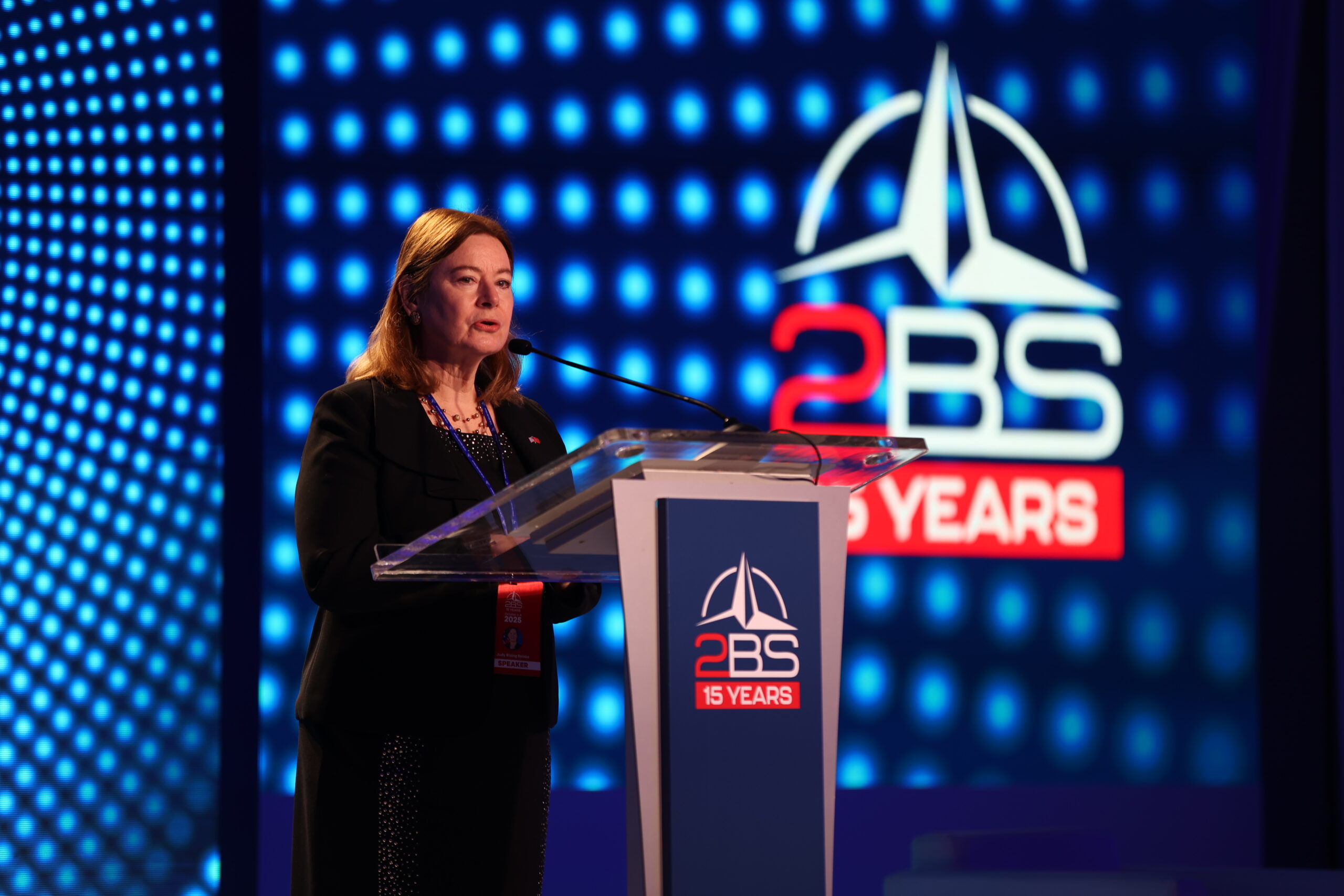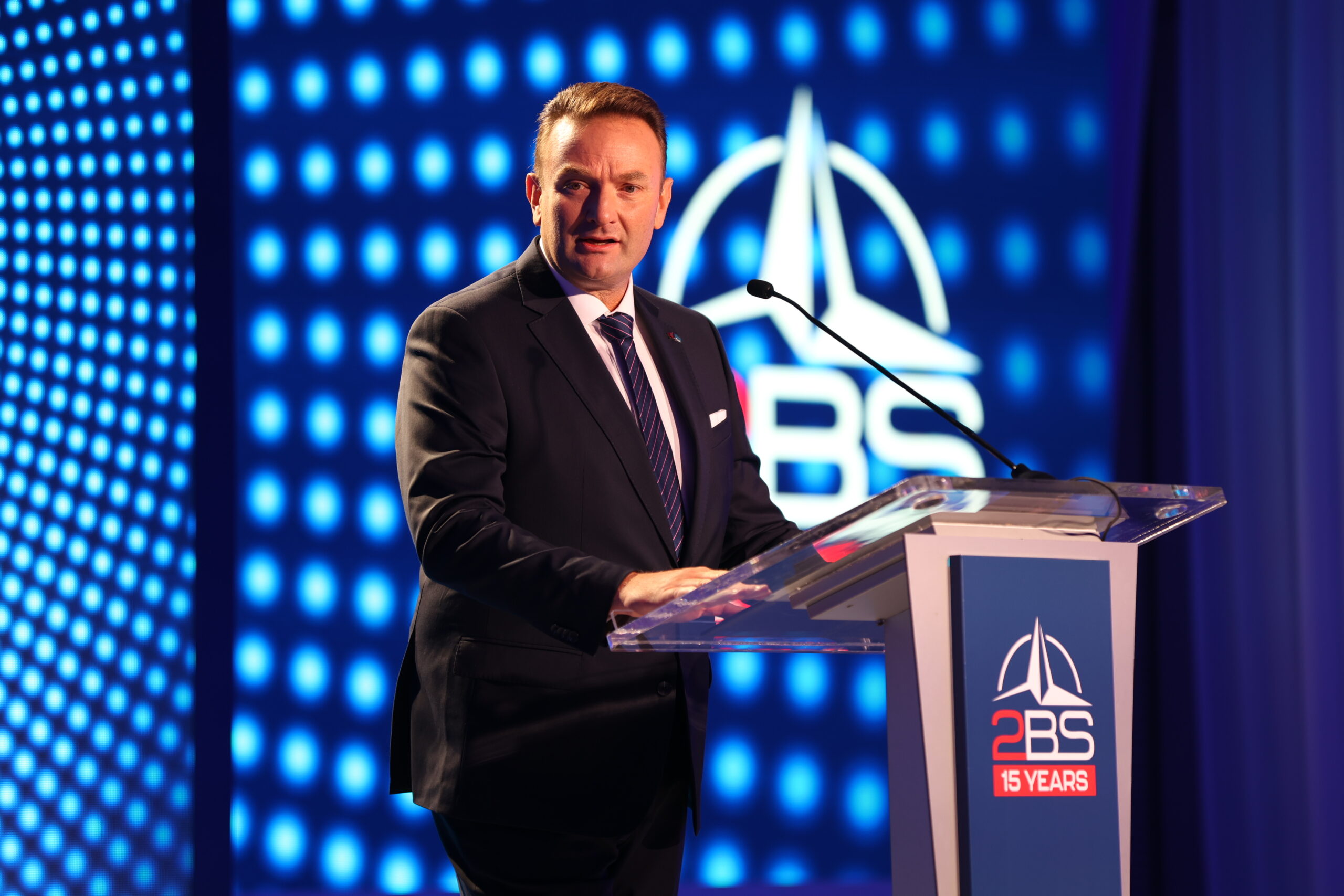The 15th anniversary To Be Secure Forum (2BS) officially opened today in Budva, with keynote addresses by Savo Kentera, President of the Atlantic Council of Montenegro, and Judy Rising Reinke, U.S. Ambassador to Montenegro.
Opening the two-day Forum, Kentera stated that fifteen years ago, the vision was that Montenegro despite being a small country by territory could become a place not only for discussing regional matters, but global issues as well.
“The world has changed dramatically over those fifteen years. We are now witnessing the return of open warfare on European soil, global geopolitical tensions, and the emergence of new security threats — from cyberattacks to hybrid warfare and disinformation,” Kentera said.
He emphasized that the Western Balkans is undergoing turbulent times.
“One thing remains unchanged: our resolve to preserve peace, stability, and freedom through the collective strength of our allies,” he added.
Kentera underscored a long-standing message of the 2BS Forum: the Balkans must not be left to fend for itself, nor handed over to third-party actors.
“Today, we reiterate this more strongly than ever: if the European Union (EU) and the United States (U.S.) do not seize this moment and accelerate the integration of all Western Balkan countries, someone else will fill that space and that must not be allowed,” Kentera warned.
He stated that the region’s future must be taken into its own hands, “firmly anchored to Europe and the transatlantic community.”
Kentera emphasized that joining the EU is Montenegro’s next strategic goal:
“Our European journey has lasted over a decade at times thorny, at times slow but today there is real momentum and unity to bring it to a close.”
He said the goal is for Montenegro to become a full EU member by 2028, noting that this is not merely a political decision, but a vision of the kind of society Montenegrins want to live in.
Kentera acknowledged that the road ahead would not be easy, pointing to foreign influences seeking to keep Montenegro divided, insecure, and incapable of progress. He stressed that Montenegro will not stop.
“To all those whether in government or outside of it who believe that radical actions or obstruction can halt our European path, I say: you will not succeed,” he said. “No one will be allowed to jeopardize Montenegro’s European perspective.”
“Our membership in the EU and NATO is a strategic choice, and any attack on those values must be decisively repelled by the state,” Kentera declared.
He also highlighted the importance of good neighborly relations, especially between Montenegro and Croatia:
“Montenegro and Croatia are connected not only by a shared Adriatic border but by centuries of struggle for freedom and a common European vision,” he said.
Kentera noted that the relationship with Croatia demonstrates that a stable Balkans is not only in the region’s interest, but also in Europe’s broader interest.
“And in this vision of a stable and united Europe, we recognize our shared strategic partner across the ocean, the United States,” he said.
According to Kentera, every generation has its moment of decision.
“This is ours. If we falter now, Montenegro will remain small, stuck in division and waiting. But if we stand tall, if we unite in strength and courage—we can enter Europe as a nation that has proven that the greatness of a country does not lie in its population size, but in the power of its vision and the strength of its spirit.”
He concluded by affirming that Montenegro remains loyal to its allies and will continue to choose freedom, dignity, and the future.
Ambassador Reinke: Montenegro Is a Committed Contributor to Euro-Atlantic Security
U.S. Ambassador to Montenegro Judy Rising Reinke stated that Montenegro’s progress in rule of law and military modernization reflects the country’s dedication to being a full-fledged contributor to Euro-Atlantic security.

Highlighting U.S. security priorities in Montenegro, Reinke emphasized that the country, as NATO’s 29th member, fulfills its obligations with clarity and resolve.
“At a time when the Alliance is raising its standards, Montenegro has gone a step further. It has embraced the concept of equitable burden-sharing within NATO,” she said.
Reinke noted that Montenegro has established a clear plan to increase defense spending and capabilities to 5% of GDP by 2035, adding that NATO will be stronger the stronger its individual members become.
“Montenegro is living proof of that. The country is investing in real capabilities from force modernization to conducting specialized training, from the mountains of Kolašin and Pljevlja to the waters of the Adriatic,” Reinke said.
She noted that Montenegro’s demonstrated capabilities go beyond land forces:
“I recently witnessed the efforts of Montenegro’s air forces to protect citizens and land from wildfires.”
Reinke also referenced investments in regional maritime security:
“In partnership with other NATO allies, Montenegro plays a vital role in protecting not only its coastline but the broader Adriatic Sea—a key corridor for trade, energy, and defense.”
She said that Montenegro’s proven multidimensional capabilities reflect a deeper truth:
“Montenegro is transforming into a platform for NATO interoperability and readiness.”
Reinke emphasized that continued reform and implementation of defense spending plans are necessary for Montenegro to fully complete this transformation and align with NATO standards.
“Montenegro’s contribution matters for the Balkans, for Europe, and for the United States,” she said.
She concluded by stressing that in today’s unpredictable global security environment, capability and commitment are essential and Montenegro demonstrates both.
“Today’s Forum in Budva is also a reminder that small nations can make tremendous, even disproportionate contributions when their traditional values are strong, their will unwavering, and their dedication to their people, sovereignty, and allies steadfast,” Ambassador Reinke concluded.
